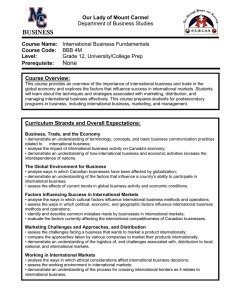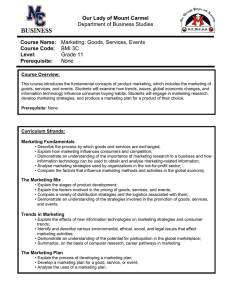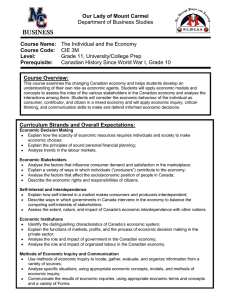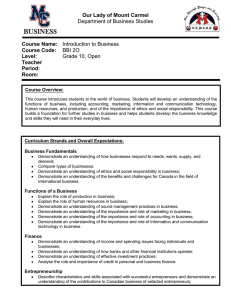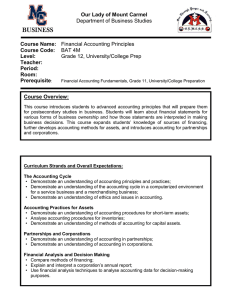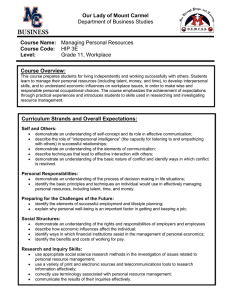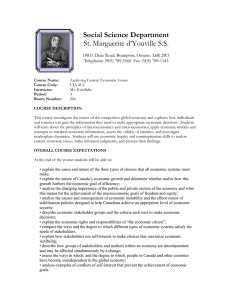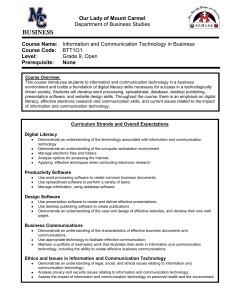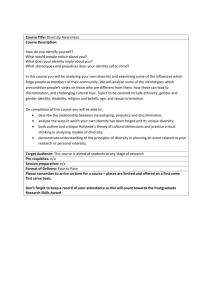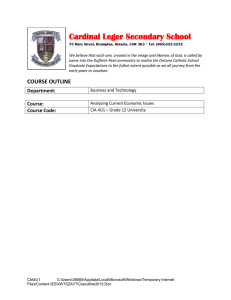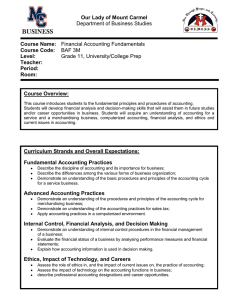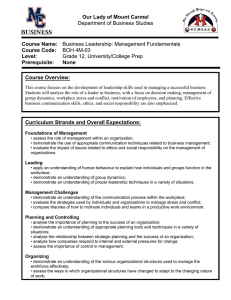Department of Business Studies Grade 12, University Preparation
advertisement
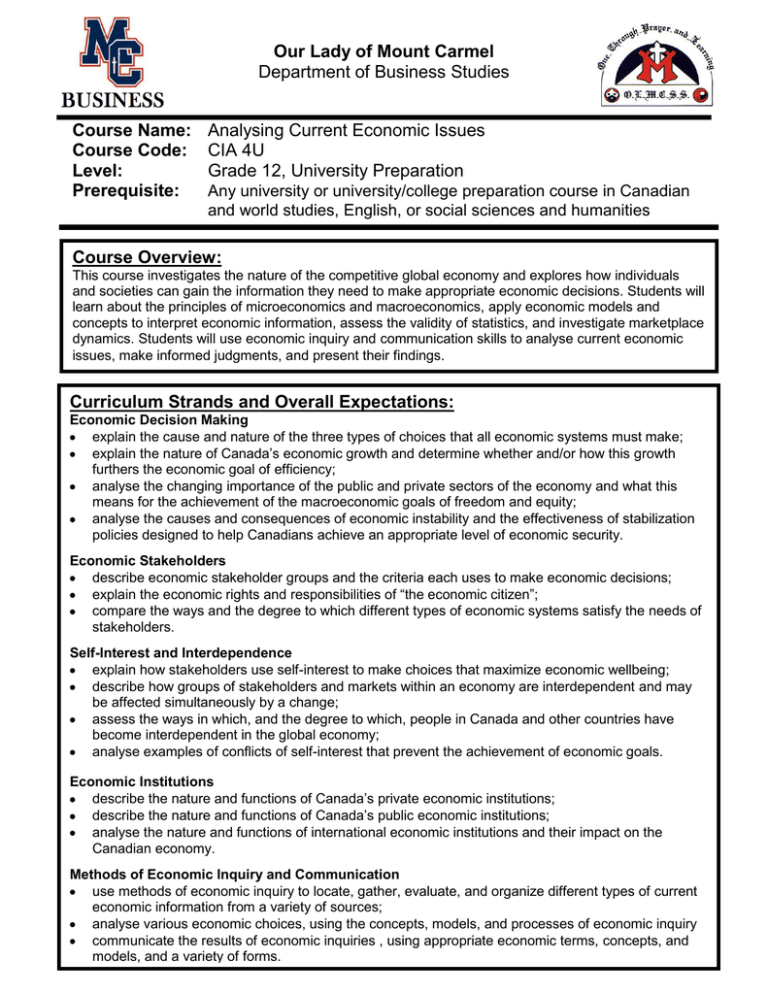
Our Lady of Mount Carmel Department of Business Studies Course Name: Course Code: Level: Prerequisite: Analysing Current Economic Issues CIA 4U Grade 12, University Preparation Any university or university/college preparation course in Canadian and world studies, English, or social sciences and humanities Course Overview: This course investigates the nature of the competitive global economy and explores how individuals and societies can gain the information they need to make appropriate economic decisions. Students will learn about the principles of microeconomics and macroeconomics, apply economic models and concepts to interpret economic information, assess the validity of statistics, and investigate marketplace dynamics. Students will use economic inquiry and communication skills to analyse current economic issues, make informed judgments, and present their findings. Curriculum Strands and Overall Expectations: Economic Decision Making explain the cause and nature of the three types of choices that all economic systems must make; explain the nature of Canada’s economic growth and determine whether and/or how this growth furthers the economic goal of efficiency; analyse the changing importance of the public and private sectors of the economy and what this means for the achievement of the macroeconomic goals of freedom and equity; analyse the causes and consequences of economic instability and the effectiveness of stabilization policies designed to help Canadians achieve an appropriate level of economic security. Economic Stakeholders describe economic stakeholder groups and the criteria each uses to make economic decisions; explain the economic rights and responsibilities of “the economic citizen”; compare the ways and the degree to which different types of economic systems satisfy the needs of stakeholders. Self-Interest and Interdependence explain how stakeholders use self-interest to make choices that maximize economic wellbeing; describe how groups of stakeholders and markets within an economy are interdependent and may be affected simultaneously by a change; assess the ways in which, and the degree to which, people in Canada and other countries have become interdependent in the global economy; analyse examples of conflicts of self-interest that prevent the achievement of economic goals. Economic Institutions describe the nature and functions of Canada’s private economic institutions; describe the nature and functions of Canada’s public economic institutions; analyse the nature and functions of international economic institutions and their impact on the Canadian economy. Methods of Economic Inquiry and Communication use methods of economic inquiry to locate, gather, evaluate, and organize different types of current economic information from a variety of sources; analyse various economic choices, using the concepts, models, and processes of economic inquiry communicate the results of economic inquiries , using appropriate economic terms, concepts, and models, and a variety of forms. Assessment and Evaluation: Students will be assessed & evaluated according to the work produced & skills displayed. Methods of providing feedback may include assessing work in process & evaluating completed assignments, quizzes, tests, co-operative learning activities, research, and presentations. Category Weightings Term (70%): Knowledge & Understanding Thinking Communication Application 30% 20% 20% 30% Final (30%): Culminating Activity Final Exam 0% 30% Achievement Categories: Knowledge/ Understanding Thinking/Inquiry knowledge of facts and terms critical and creative thinking skills (e.g., evaluating business situations; analysing financial data and solving business problems; making decisions) understanding of concepts, principles, and theories understanding of relationships between concepts and ideas inquiry skills (e.g.,generating ideas; formulating questions; planning; selecting strategies and resources; analysing, interpreting, and assessing information; forming conclusions) Communication communication of information and ideas (e.g., through writing, visual and oral presentations) use of language, symbols, and visuals communication for different audiences and purposes (e.g., choice of language and style relevant to business environments) Application application of concepts, skills, and procedures in familiar contexts transfer of concepts, skills, and procedures to new contexts use of equipment, materials, and technology application of technology (e.g. choice of tools and software, ethical use) making connections (e.g. between use of various forms of personal experiences and the communication (e.g., memos, subject, between the subjects and letters, reports) the world outside the school Feedback will also be provided for student learning skills. Skills like working independently, team work, organization, work habits and homework, and initiative are assessed independently student achievement and will be conducted through the use of a rubric indicating specific criteria to be achieved to receive each of the following letter grades: E –Excellent G – Good S – Satisfactory N - Needs Improvement Achievement Levels: Level 1: 50 – 59% Limited knowledge and/or success Level 2: 60 – 69% Some knowledge and/or success Level 3: 70 – 79% Considerable knowledge and/or success Level 4: 80 – 100% Thorough understanding & mastery of skills Please refer to your student agenda for the following policies: Evaluation Attendance Uniform Student Textbook: Economics Now: Analysing Current Issues, Angelo Bolotta. Replacement Cost $70 Student: (print name) __________________________ Signature: ____________________________ Parent/Guardian Signature: ___________________________ Date: ____________________________
